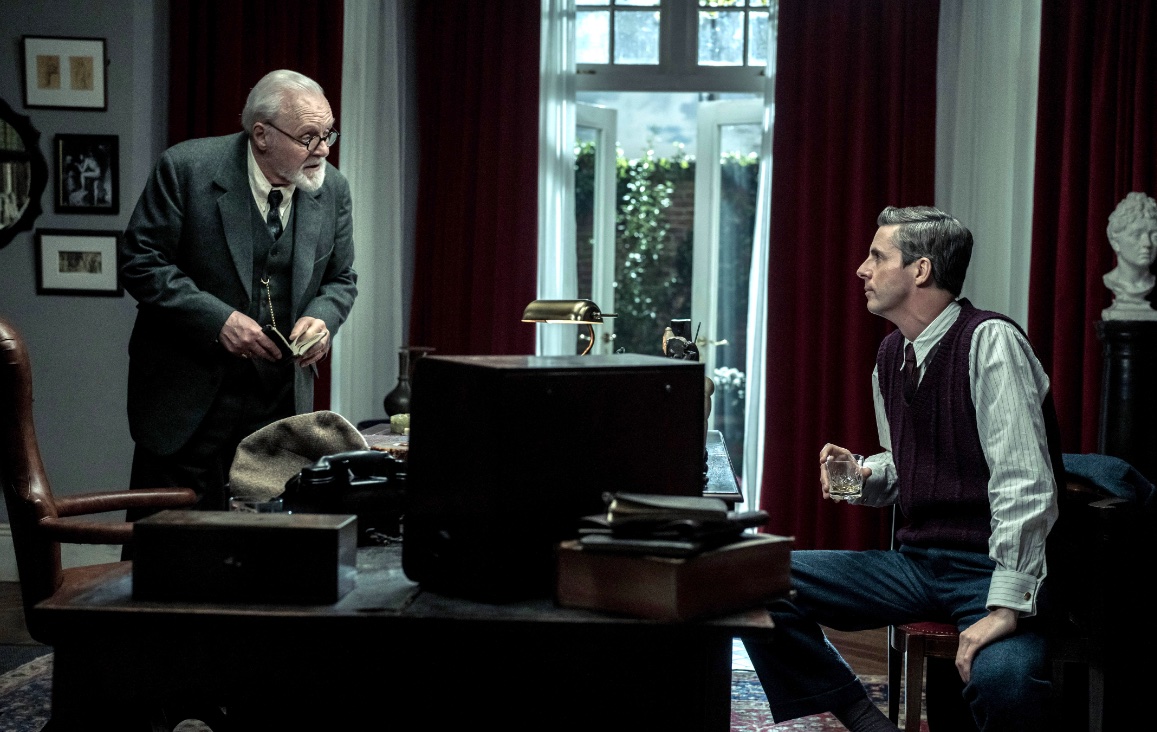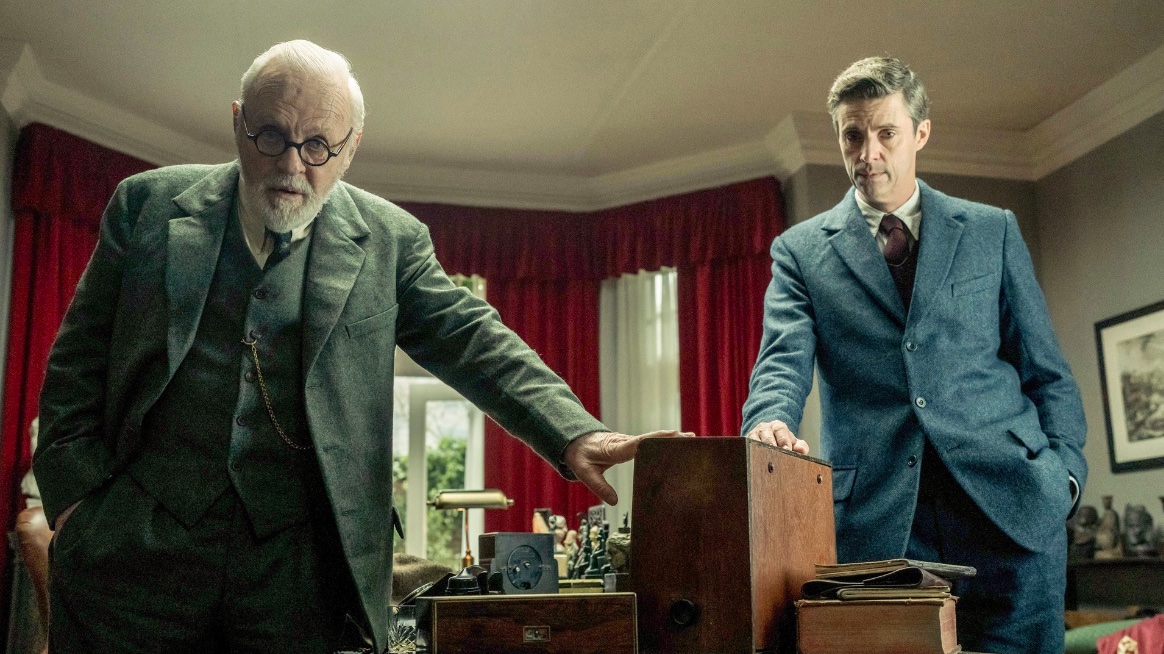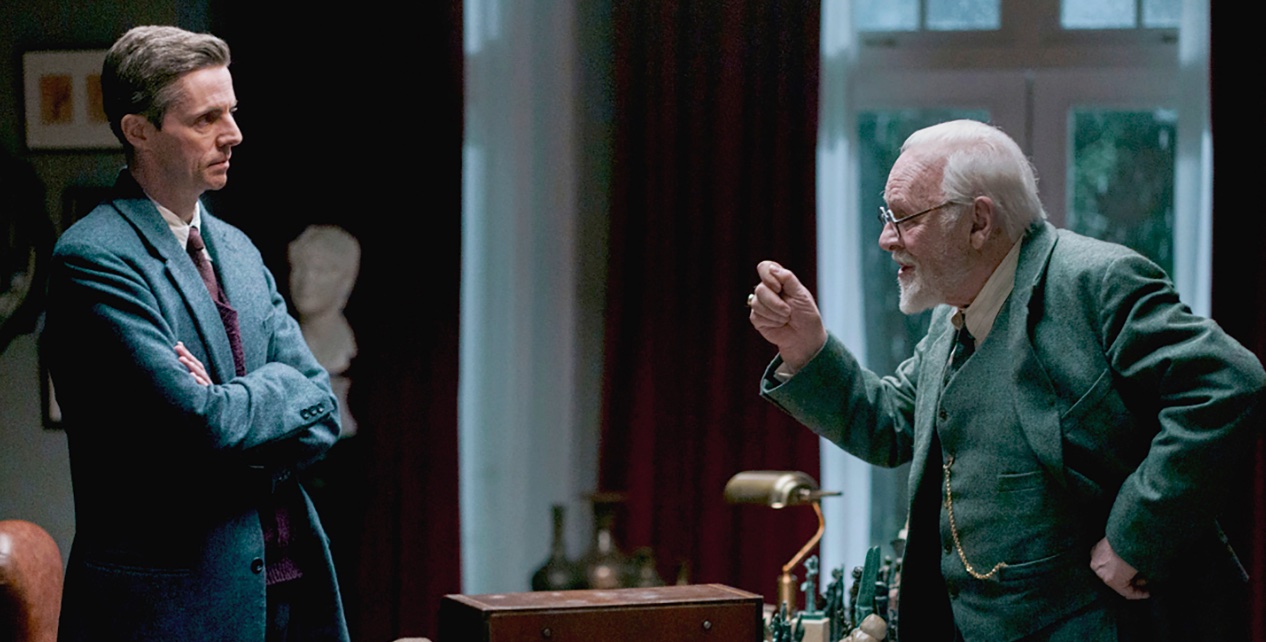In ‘Freud’s Last Session,’ the meeting between Sigmund Freud and C.S. Lewis leads to a discussion about God and other beliefs between two men of diametrically opposite faiths. While Freud is a staunch atheist despite his Jewish background, Lewis deeply believes in God and his plan for humanity, no matter how painful it seems, especially with the sirens going off around them, marking the beginning of the Second World War. The back and forth between them, with both sides being steadfast about their beliefs, makes for an interesting watch and is bound to make one wonder if Freud and Lewis really had such a debate in real life, and if so, who won.
Freud’s Last Session Imagines a Meeting Between Sigmund Freud and C.S. Lewis

As far as historical records are concerned, there is no proof that Sigmund Freud and C.S. Lewis ever met each other or ever had a debate about God and religion. At the end of the film, a title card reveals that in the last few days of his life, Freud had a meeting with an Oxford don, though the identity of the person is not confirmed. So, where does the idea of a meeting between them come from?
Dr. Armand M. Nicholi Jr. was a professor of psychiatry at Harvard Medical School. In 1967, he took a seminar about Freud’s atheistic philosophies and their rationalization. However, his students demanded that the scope of their studies be expanded by including the religious perspective rather than viewing the subject from just one side. This led Nicholi to pick C.S. Lewis, a well-known man of faith, to counter the points made by Freud. This course laid the foundation of an important study, and he taught the course at Harvard for twenty-five years. In 2002, he published ‘The Question of God,’ in which he laid down all of the material he’d accumulated about Freud and Lewis’ philosophies over the years.
Nicholi did not need to imagine a meeting between the two men, as it probably did not happen. However, in writing the book, he laid down their writings and letters in a way that would make it appear they were having a debate with each other. He arranged their words in a way that made it look like they were answering each other’s doubts and questions, with Freud leaning towards atheism and the logic of God’s non-existence and Lewis countering his arguments with his own unshakable belief. One of the things that makes the whole thing more interesting is that Lewis, who was born to the people who followed the Church of Ireland, had been an atheist for a good part of his youth. He became an Anglican under the influence of his friends at Oxford, especially Tolkien, which adds another layer to his arguments against atheism.

Despite pitting the words of Freud and Lewis against each other, ‘The Question of God’ doesn’t give any fixed answer in favor of either side. Rather, it opens the discussion for its reader, allowing them to add their own beliefs into the mix and further the conversation. The book was turned into a two-part PBS series in 2004, and in 2010, premiered on Broadway as the play, ‘Freud’s Last Session,’ written by Mark St. Germain, who imagined the setting of the meeting between Freud and Lewis, actually putting the two of them in a room and battling it out. The play became the basis for the movie starring Anthony Hopkins and Matthew Goode, which, much like Nicholi’s book, doesn’t take sides. Rather, it focuses on Freud and Lewis’ personal lives to understand what shaped their beliefs and opinions and why none can be considered wrong.
Read More: Was Sigmund Freud’s Daughter Anna Freud Gay? Did She and Dorothy Burlingham Have an Affair?


You must be logged in to post a comment.